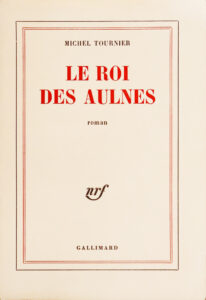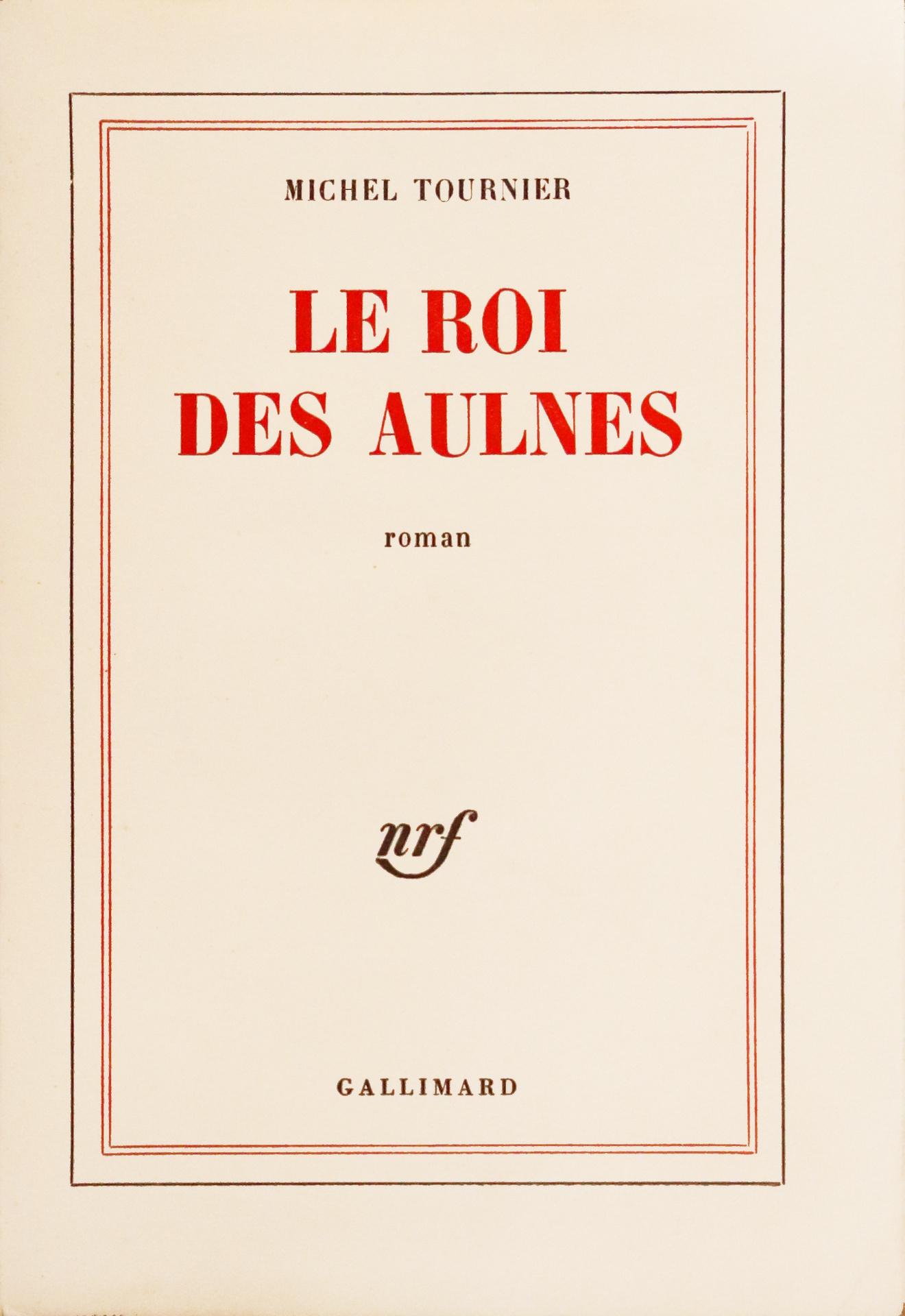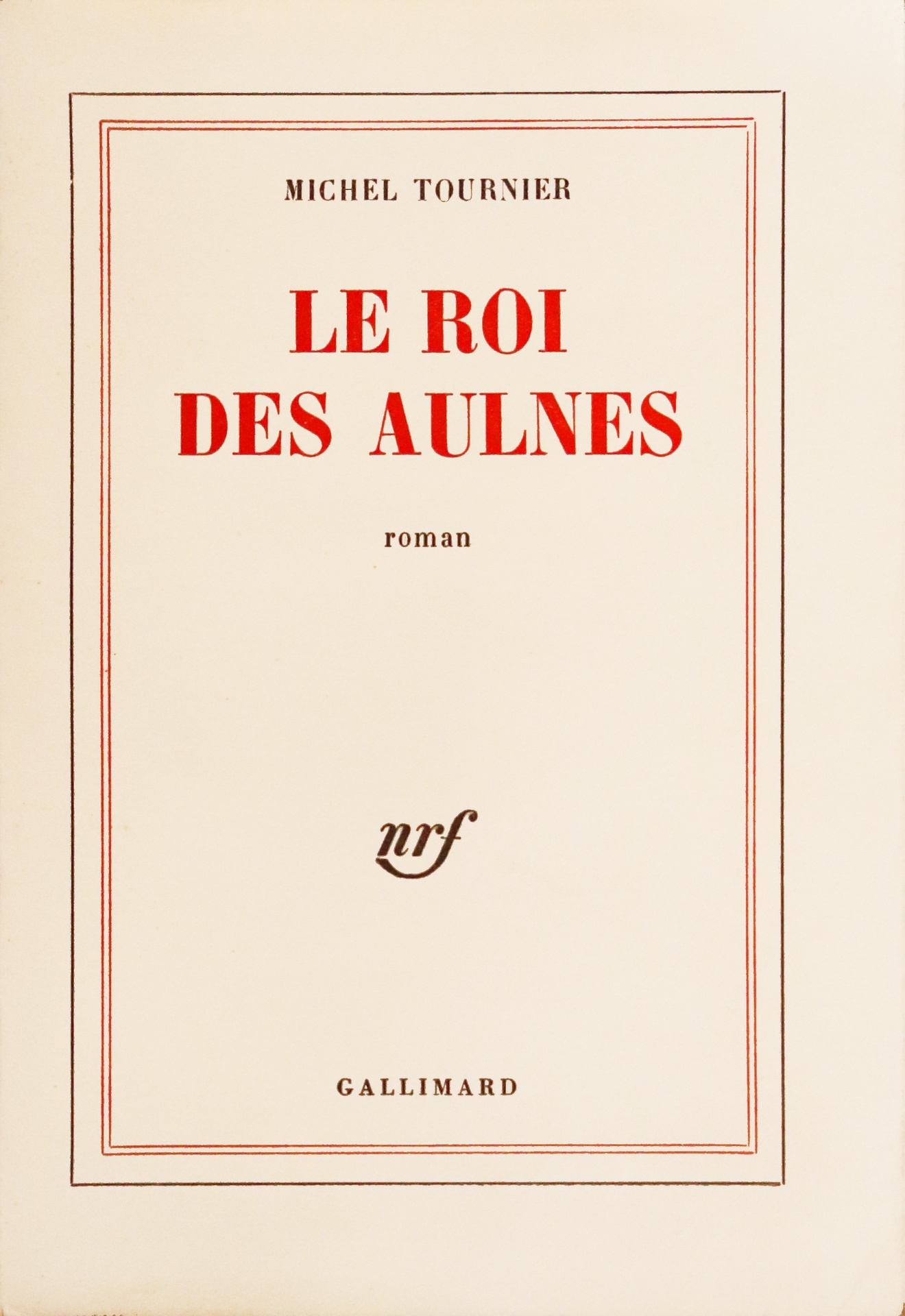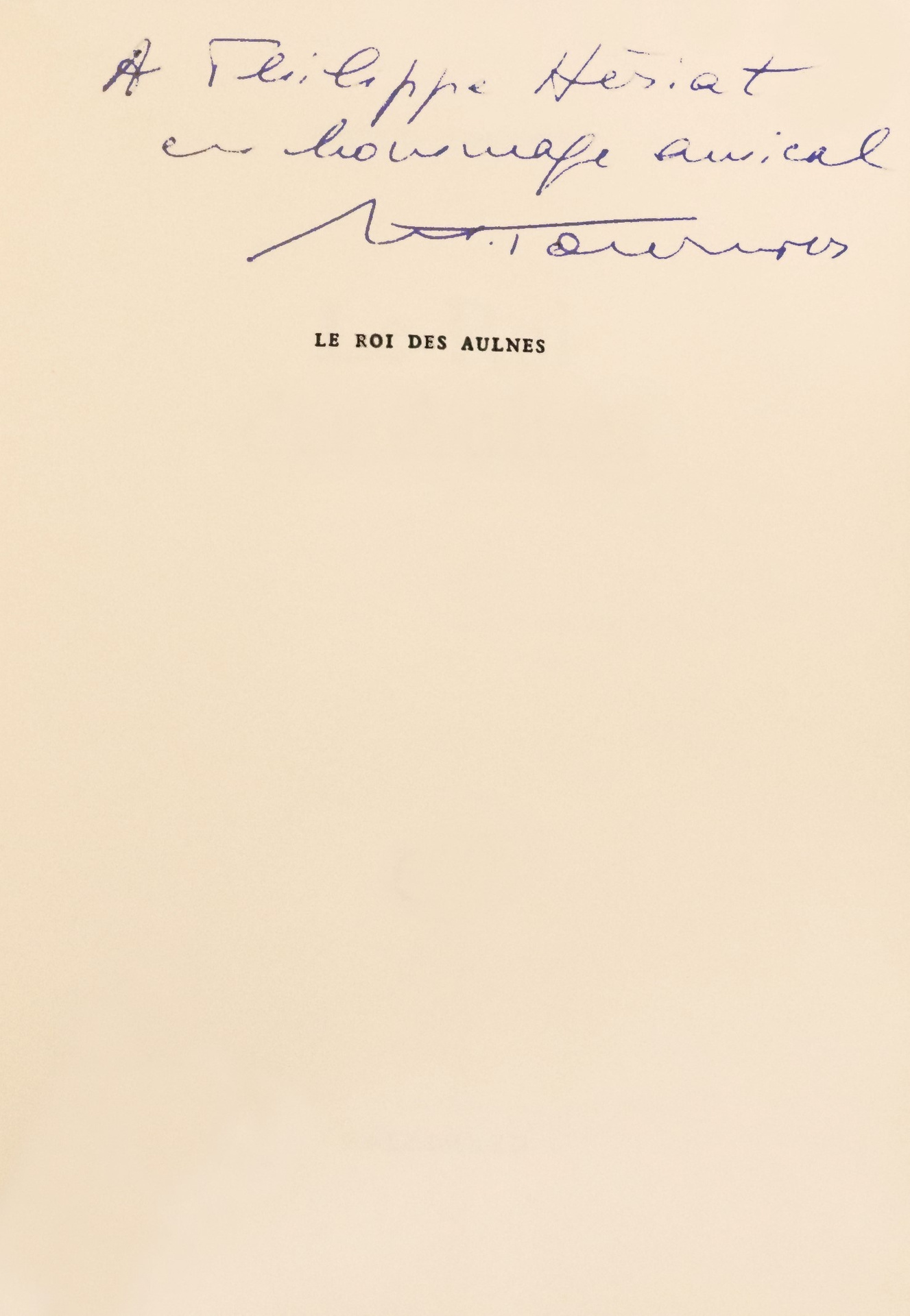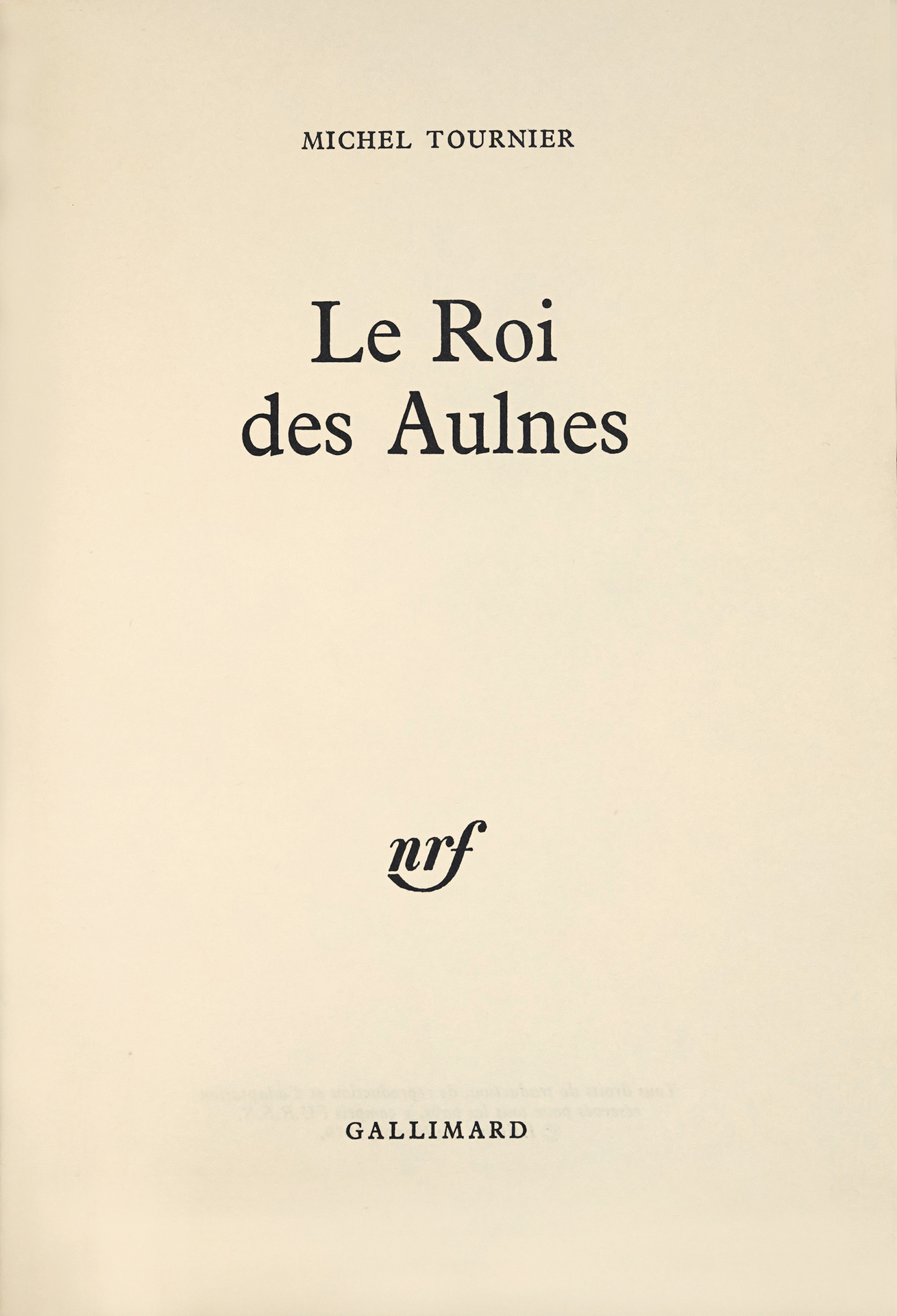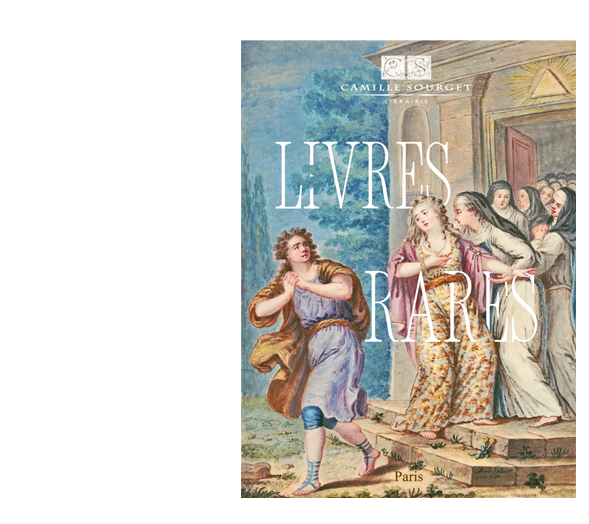Paris, Gallimard, 1970.
Large 8vo [205 x 140 mm] of 395 pp., (3) pp., (1) l. Preserved in the original wrappers.
True first edition, rare, of this 1970 Prix Goncourt of which no large paper copies were printed (completed on 26 August 1970).
As soon as it was released in bookshops in September 1970, the book achieved great success; for that matter, it was awarded the Prix Goncourt unanimously the same year. This is the second novel by Michel Tournier published by Gallimard, after Vendredi ou les limbes du Pacifique, which was also warmly received by critics and bookshops.
Le Roi des Aulnes rewrites in an extraordinarily rich, meticulous and well-documented version the Ogre myth from Goethe’s poem, immortalized by Schubert’s music, which is a variation on the legendary theme of the child-robbing monster as well as an illustration of a certain Germanic imagination. The story of an ogre intersecting for a moment with that of Germany is the plot of this dense novel that brings to life some of the most tragic pages of the twentieth century by linking them to some of the most deeply rooted fantasy figures in our collective unconscious.
Le Roi des Aulnes is the result of hard work: “a book is two years of investigation, two years of writing”, as Michel Tournier said.
“His story takes place in a region that disappeared in 1945, divided between the USSR and Poland: East Prussia, where Tournier has never set foot, and he compensates for his inexperience of this country with a wealth of indisputable details. He shamelessly plunders everything that is geography, history, anatomy, archaeology, technology, devours dictionaries, treatises on war pigeons and hunting. He looks up the fifteen thick volumes of the “minutes” of the Nuremberg trial. He even forces a cabinet-maker to relive the cursed period of his captivity in Mazury, to give him episodes and details that no mind could have invented. Like Flaubert, whom he venerates, Tournier first draws up a plan, makes notes on the characters and landscapes, and knows the end of his story from the first page. Here he seeks to build his novel on the model of Bach’s The Art of Fugue. As for the title, it will be Le Roi des Aulnes (The Alder King), in reference to the famous ballad by Goethe.
The novel was published by Gallimard in 1970, and was immediately supported by warm reviews. François Nourissier, in Le Magazine littéraire, described it as a “charming combination of Gracq and Marianne Andrau, of Pierre Benoît and Georges Bataille”, noting that “we are witnessing the appearance of one of those great secret books that mark out, either secretly or in the glare of immediate glory, the path of literature”. His friend from Tübingen, Claude Lanzmann, congratulates him in private. His publisher having at least one witness, Queneau, in the jury of the Académie Goncourt, Tournier admits that he sensed the prize coming. His book won it unanimously, which has never been seen before. Only he was a little saddened that he was missing the voice of the Goncourt member that he cherished the most, namely that of Giono, who had just passed away and whose Le Chant du Monde he had loved.
Le Roi des Aulnes was again a huge bestseller, both in France and in several other European countries. Over the years, Michel Tournier became an author studied in classrooms, probably more for his Vendredi than for Le Roi des Aulnes, which reached a more adult audience. The filmmaker Volker Schlöndorff adapted it in 1996 under the title L’Ogre. This novel introduced a political dimension into the ogre myth, which was to have a literary posterity in Chessex and Pennac. To which work should Le Roi des Aulnes be compared in the most recent novels, one can hardly see anything other than Les Bienveillantes, because this book too raises the question of evil in literature through a perverse experience of Nazi Germany.” (Gallimard)
Our copy, from the press service, is precisely enriched with an autograph dedication signed by the author to Philippe Heriat, one of the members of the Goncourt jury.
A very good copy, as new, enriched with a beautiful autograph dedication signed by the author.
